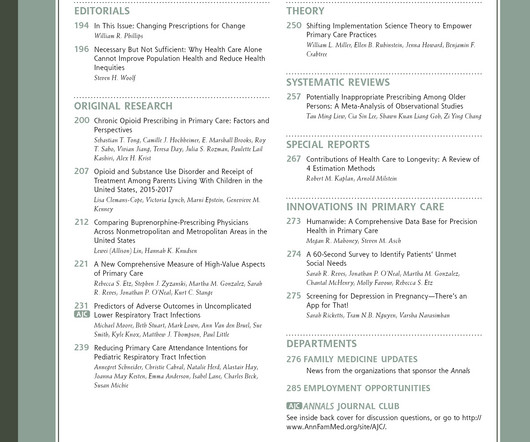Rural Ontario Complete Lifestyle Medicine Intervention Program (CLIP-ON) [Dissemination and implementation research]
Annals of Family Medicine
NOVEMBER 20, 2024
Context: Chronic illness is at a record high in society. Lifestyle medicine programs have demonstrated a positive impact in managing these diseases but are poorly implemented and unavailable in rural communities. It includes 22 weekly group classes and monthly appointments. gender, age, race, education, etc.),












Let's personalize your content